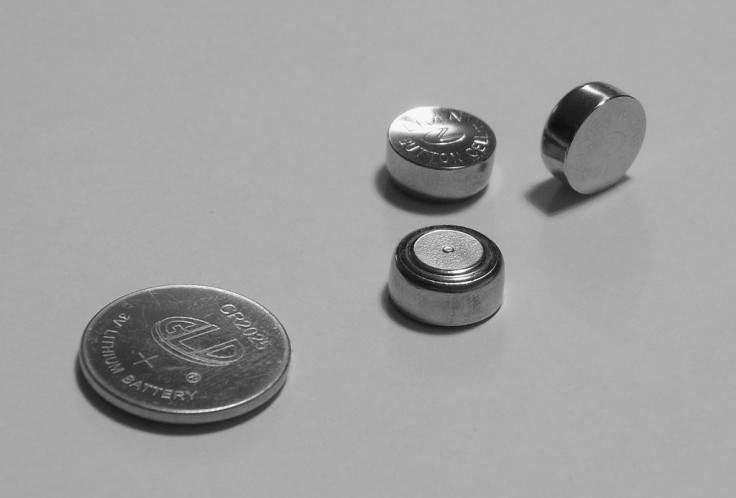CDC Report : Children Swallowing Tiny Batteries on the Rise

Small button-like batteries cause serious injuries and even death in children.
According to a report by the Centers for Disease Control and Prevention, CDC, about 40,000 cases of children ingesting small lithium batteries have been documented between1997 and 2010; 14 of which have resulted in death. The report added that there has been a 2.5 fold increase in the number of children swallowing these tiny batteries from around 1,900 cases in 1998 to 4,800 cases in 2010.
"This is a problem we have known about because of all the electronic devices people have," said Dr. Amanda Porro, a pediatrician at Miami Children's Hospital, who was not involved with the report, HealthDay reports.
More than 72 percent of the accidents involved children less than 4 years of age. The most common sources of batteries were identified as toys, light-up jewelry, flashlights, remote controls, watches and hearing aids.
According to an editorial along with the report there are non-specific symptoms battery-induced injuries among children that include," vomiting, abdominal pain, fever, diarrhea, respiratory distress, and dysphagia."
"Parents and caregivers should be aware of the potential hazards associated with battery exposure (particularly ingestion of button batteries) and ensure that products containing them are either kept away from children or that the batteries are secured safely in the product," the CDC report said.
According to the report, children might be reluctant to say that they swallowed a battery or gave one to their siblings. There have been cases where children have been misdiagnosed and sent back home like a 2 year old boy who complained of abdominal pain and choking. Physicians weren't able to diagnose the cause of the symptoms. The boy died of internal bleeding 8 days later due to a tiny battery from a remote control.
Scott Wolfson, director of communications for the Consumer Product Safety Commission. said that part of the battery-induced injuries can be partly solved by innovations that won't allow children get access to these batteries.
"We want these products that use button cells to be designed in a way that children can never get access to them. We believe that there can be innovations in both the way the battery is made and how it is used in various products," Wolfson said, reports abc news.
The present analysis was released by Centers for Disease Control and prevention and Consumer Product Safety Commission.
Published by Medicaldaily.com



























